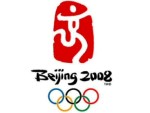By Raffique Shah
Sunday, August 17th 2008
 By the time this column is published on Sunday, American swimmer Michael Phelps would more than likely have achieved his goal of winning a record eight gold medals. Mark Spitz, the sole swimmer among an elite club of Olympians who won multiple medals in his career, would also have been in Beijing to see this swimming phenomenon set a new benchmark in the pool.
By the time this column is published on Sunday, American swimmer Michael Phelps would more than likely have achieved his goal of winning a record eight gold medals. Mark Spitz, the sole swimmer among an elite club of Olympians who won multiple medals in his career, would also have been in Beijing to see this swimming phenomenon set a new benchmark in the pool.
Carl Lewis, whose mark of nine gold medals at three Olympic Games was obliterated earlier last week, was gracious enough to acknowledge Phelps’s achievement. But the debate over the dynamite swimmer’s standing among all-time greats at the Games will continue long after the flame is doused in Beijing.
No one can question Phelps’s prowess in the sport that has brought him glory, or his tenacity in staying fit and improving his times over three Games. In Sydney, 2000, he won nothing.
Four years ago in Athens, he caused a sensation by bagging six gold medals. Then came his bid in Beijing to write his name in sporting history. And what style-and speed-he displayed in the pool.
Clearly, his record-breaking run in the pool will raise questions as to how “clean” he may be. With performance-enhancing drugs being almost par for the superman (and superwoman!) course in all sports, people have already suggested he may have used “something”.
I have argued against that, what with more athletes being exposed as drug-cheats. It’s shameful in the extreme to win all that gold and the bountiful endorsements that go with winners, then having to face prison sentences for cheating.
Marion Jones, a sprinting heroine a few years ago, can hardly show her face in public without scorn being heaped on her. Neither Phelps nor the US swimming authorities would want that. My own take on Phelps is that technology in America has advanced to the point where they have implanted a miniature jet engine in his butt that propels him way beyond what is humanly possible! Of course I’m having fun at the champion swimmer’s expense.
The question remains, though: Is he the greatest Olympian ever? Critics have pointed out that the Olympics swimming schedule of events gives participants in that sport an advantage over, say, track and field athletes, the latter disciplines being sports most common denominator across the world. For all its advances, competitive swimming is not widely accessible, more so to the poor, hence it remains an elitist sport. In some ways, it’s comparable with equestrian events, although I am sure the Tuaregs and other nomadic people who roam wastelands on horseback would beat the best that we see at the Games.
In swimming, there are 17 events in which competitors can win medals, starting with the 50-metres freestyle, in which George Bovell swam. In track and field there are 22. But whereas in the pool the distances tackled are mostly up to 400 metres (there’s a 1500-metres event for men), with the bulk being between 100-metres and 200-metres, on the track or road athletes compete from 100-metres to 50-kilometres (race walking). Few track and field athletes can participate in more than four events, and that at the shorter distances, including the relays. It took Lewis three successful Olympics to reap his harvest of nine gold medals.
The great Jesse Owens won four in 1936-and had the pleasure of showing his butt to the racist Adolf Hitler. Interestingly, in the spirit of the Games that I wrote about last week, when he was seen to be coming up short in the long-jump, it was a blonde, blue-eyed German rival who quietly showed him how to mark his take-off point in the jump.
Owens, who endured racism in his own country almost until the day he died, said he tried seeking out the German after World War II, only to learn the man had been killed in action. Another side of Owens that is not known to many is this. At a special meet at Ann Arbor, set up to challenge the athlete’s prowess in 1935, within a 45-minute period, and carrying a fairly serious injury, he broke three world records (long jump, 220-yard dash and the 220-yard low hurdles) and equalled the 100-yard record of 9.4 seconds. In one year as a junior, Owens competed in 42 events-and won them all.
There was, too, among the greatest athletes ever, Finland’s Paavo Nurmi, who set no less than 58 official and unofficial world records in the era during which he dominated distance running. During preparations for the 1924 Paris Olympics, he set records in the 1500-metre and 5,000-metre races, running both with 50 minutes. Nurmi raked in 12 Olympic medals (1920-28), nine of them gold and three silver. Space does not allow me to explore many more who vie for the title “greatest ever”. But for readers who are interested, check out names like Emil Zatopek, Wilma Rudolph, Fanny Blankers-Koen, Bob Beamon and Jim Thorpe. In gymnastics, try Nikolai Andranov, Larissa Latynina (18 medals!) and Nadia Comanici.
So the question remains: who is or was the greatest Olympian ever?

Jesse Owens
THIS COMPARISON CANNOT BE MADE.